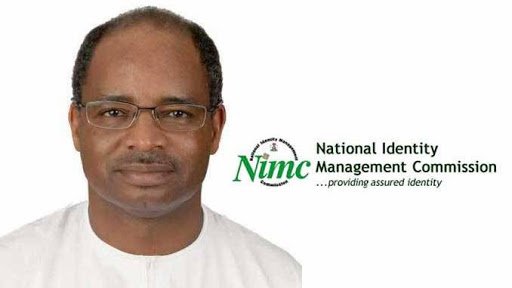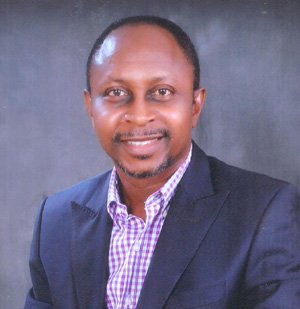Meet Engr. Aliyu Aziz from Taraba State. He is the Director General of National Identity Management Commission (NIMC). Aziz was first appointed to the position in 2015 and reappointed in 2019 by President Muhammadu Buhari.

For all his 5 years in office however, there is no known achievement or significant progress recorded in the National Identity Card program. The vast majority of Nigerians still don’t have National Identity cards or numbers. Some who once had were recently told theirs had expired. Millions have been enrolled for years with no ID cards to show for it. There is no regularly published report on the numbers so far enrolled and plans for those not yet on the register.
At flagship NIMC offices in Abuja and Lagos, only a handful of fully operational data capture machines are at work at any given time. So, at best, only a small number of people can be processed daily in each location. Across the rest of the country, NIMC has only a skeletal presence in each state capital, and zero presence in rural areas. For a country of over 200 million people, most of whom reside in rural areas, NIMC operational capabilities after 13 years of existence are a joke. Yet the Commission regularly pretends otherwise.
In 2019, it announced that millions of students registering for joint university matriculation exams would not be allowed to complete their applications unless they attached evidence of National ID card enrollment. This led to weeks of stampede by both anxious students and their parents. In the end nothing was achieved and the threat was shelved.
Late in 2020, right in the middle of the Covid-19 pandemic, NIMC decided to strike again. It announced that Nigerians had only a few weeks to obtain their National ID Numbers (NIN) and digitally link same with their phone lines through their network service providers. Those who fail to do this, NIMC said, would have their telephone lines blocked.
Expectedly, another round of national stampede has ensued. Nigerians, most of whom are living on the fringes of existence, are spending their meagre incomes chasing the new mirage. Valuable man-hours are being lost. Stress and Covid-19 risk levels are up. Instead of resting at home this festive season, Nigerians are condemned once more to a miserable life on endless NIN queues. This will almost certainly not end well.
For a commission with the scant capabilities and modest achievements of NIMC, the timeframe for this project is not only overambitious but patently insensitive and mischievous. There can be only one real objective for this: to send Nigerians out on another wild goose chase.
It is easy to see how poorly thought out, ill-timed and ill-conceived this is. Why the hurry? What’s the impact on public health and social welfare? What’s the logic of prioritizing a national identity card program at a time of global health emergency? Why can’t the National ID program be synchronized as a backroom operation with our international passports, bank accounts and phone lines without fanfare? Why must Nigerian citizens regularly be put through ordeals? What does this say about the caliber of officials in charge of our public policy and affairs?
It is now clear that both NIMC and the NIN project have been hijacked by persons and interests whose only wish must be to distract and divert public attention from the many failings of the Nigerian state.
This time, the consequences could be catastrophic. While other governments around the globe are doubling economic stimulus packages for their citizens and imposing lockdowns to curb a fresh upsurge of Covid-19 infections, the Nigerian government, through NIMC, is literally sending Nigerians to their early graves. All in the name of National Identity enrollment. This nonsense must stop.
Being a Nigerian in this day and age is already difficult enough with grave challenges to individual security, livelihood and sanity. National Identity enrollment should be a smooth, ongoing program with no additional stresses and threats attached.
Nigeria is a democracy, not a police, fascist, conquered or occupied state. Therefore, the comfort and well-being of citizens should be the primary and overriding consideration behind public policy. With NIMC, it is not.

Victor Anazonwu, a historian and journalist, is author of “The 8 Habits of Highly Ineffective People.” He writes from Lagos.
![]()



